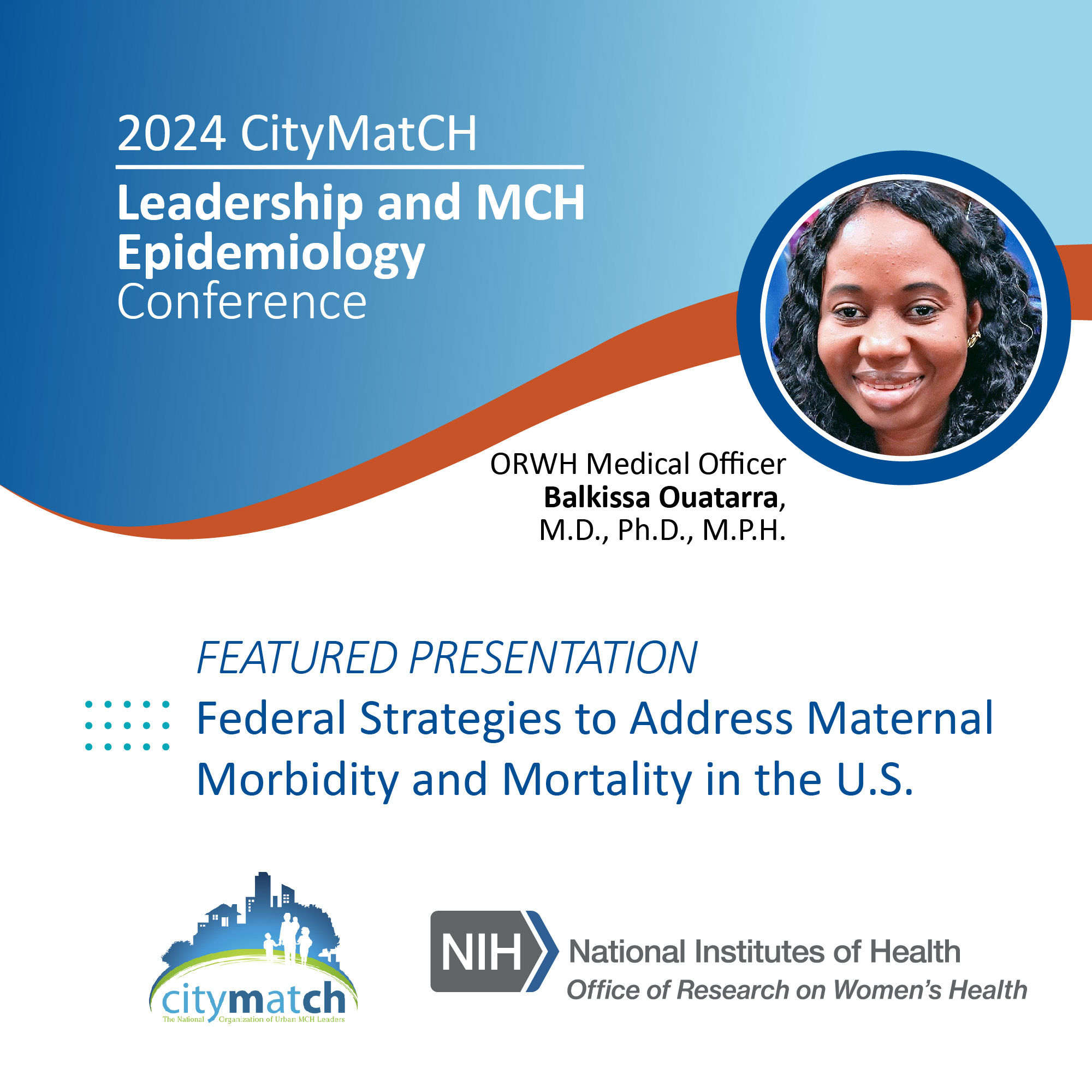
The 2024 CityMatCH Leadership and Maternal Child Health (MCH) Epidemiology Conference, Reaching New Heights: Strengthening MCH Across Generations, took place in Seattle, Washington, from September 9 to 11. The conference brought together city and county health departments’ maternal and child health programs and urban community leaders from around the country. Balkissa Ouattara, M.D., Ph.D., M.P.H., ORWH medical officer, presented at the conference on “Federal Strategies to Address Maternal Morbidity and Mortality in the U.S.”
Dr. Ouattara’s presentation focused on her work with the NIH Implementing a Maternal health and PRegnancy Outcomes Vision for Everyone (IMPROVE) Initiative, an NIH-wide effort to address the maternal morbidity and mortality crisis in the U.S. The IMPROVE initiative promotes research to decrease preventable causes of maternal morbidity and mortality and enhances women’s health across the lifespan – before, during, and after pregnancy. It is co-chaired by the director of ORWH alongside the directors from the Eunice Kennedy Shriver National Institute of Child Health and Human Development and the National Institute of Nursing Research.
Dr. Ouattara provided insight into her roles for two workstreams within the IMPROVE initiative. For the first, Dr. Ouattara is a project scientist at Addressing Key Social-Structural Risk Factors for Racial Disparities in Maternal Morbidity in Southeastern Wisconsin (ASCEND WI), which is one of the 12 Maternal Health Research Centers of Excellence that promotes maternal health equity and develops and evaluates innovative approaches to reduce pregnancy-related complications and deaths. Secondly, Dr. Ouattara is a core member of the Connecting the Community for Maternal Health Challenge working group, which encourages and rewards nonprofit community-based or advocacy organizations to develop research capabilities and infrastructure to pursue research projects in the area of maternal health, inclusive of maternal morbidity and mortality.
Dr. Ouattara’s presentation was well-attended, and participants asked insightful questions about NIH resources, potential collaborations with the Centers of Excellence, and opportunities to engage in future NIH challenges.
If you’re seeking to learn more about the maternal mortality health crisis, ORWH encourages you to explore the publication “Addressing the Public Health Crisis of Maternal Mortality: A National Research Agenda” that is co-authored by ORWH Director, Janine Austin Clayton, M.D., FARVO.
